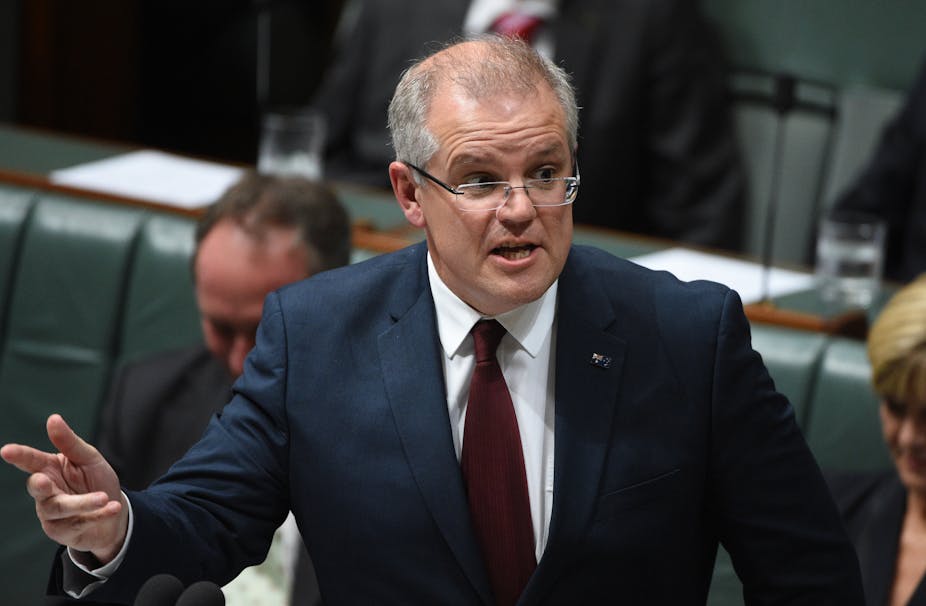Treasurer Scott Morrison has flagged the prospect of ministers campaigning on both sides in the same-sex marriage plebiscite – as happened in the republic referendum.
As the government tried to speak with one voice on the timing of the plebiscite it will hold if re-elected, Morrison said he did not plan to keep his opinions on same-sex marriage to himself and “I don’t think anyone should”.
“That’s the whole point of having a plebiscite. We are not going to bind our members on these sorts of things … Members of parliament should be free to express their views on this as they see fit,” he said.
“People know my view,” he said. “I am not in favour of that change. I would like to see things remain as they are.”
On Sunday Attorney-General George Brandis said categorically that the plebiscite would be held this year, only to be immediately corrected by the Prime Minister’s Office. The official line is that its timing will depend on the election’s timing.
Despite the contradiction, Brandis on Monday said: “There is no difference between Mr Turnbull and me in relation to the timing” – the issue would be decided by the people “early in the life of the next parliament”.
Government sources could only explain Brandis’ repeated Sunday references to the end of this year by saying he must have been assuming an election in July or August. There is increasing speculation about a July 2 double dissolution.
Brandis spoke before cabinet has considered the mechanics of a plebiscite, which it will do before long, so its position for the election campaign is clear.
Morrison said the plebiscite vote would be compulsory “which is different from what was done in other places like Ireland. So everyone will have to show up like they do in an election.”
He pointed out that a plebiscite was quite different to a referendum, requiring only an overall majority, not a majority of states as well.
Having senior government figures arguing against each other might help the “no” side, as it did in the republic referendum. However, if the plebiscite is carried, frontbenchers would presumably then be bound to support the legislation required to implement it, although backbenchers could exercise a conscience vote.

